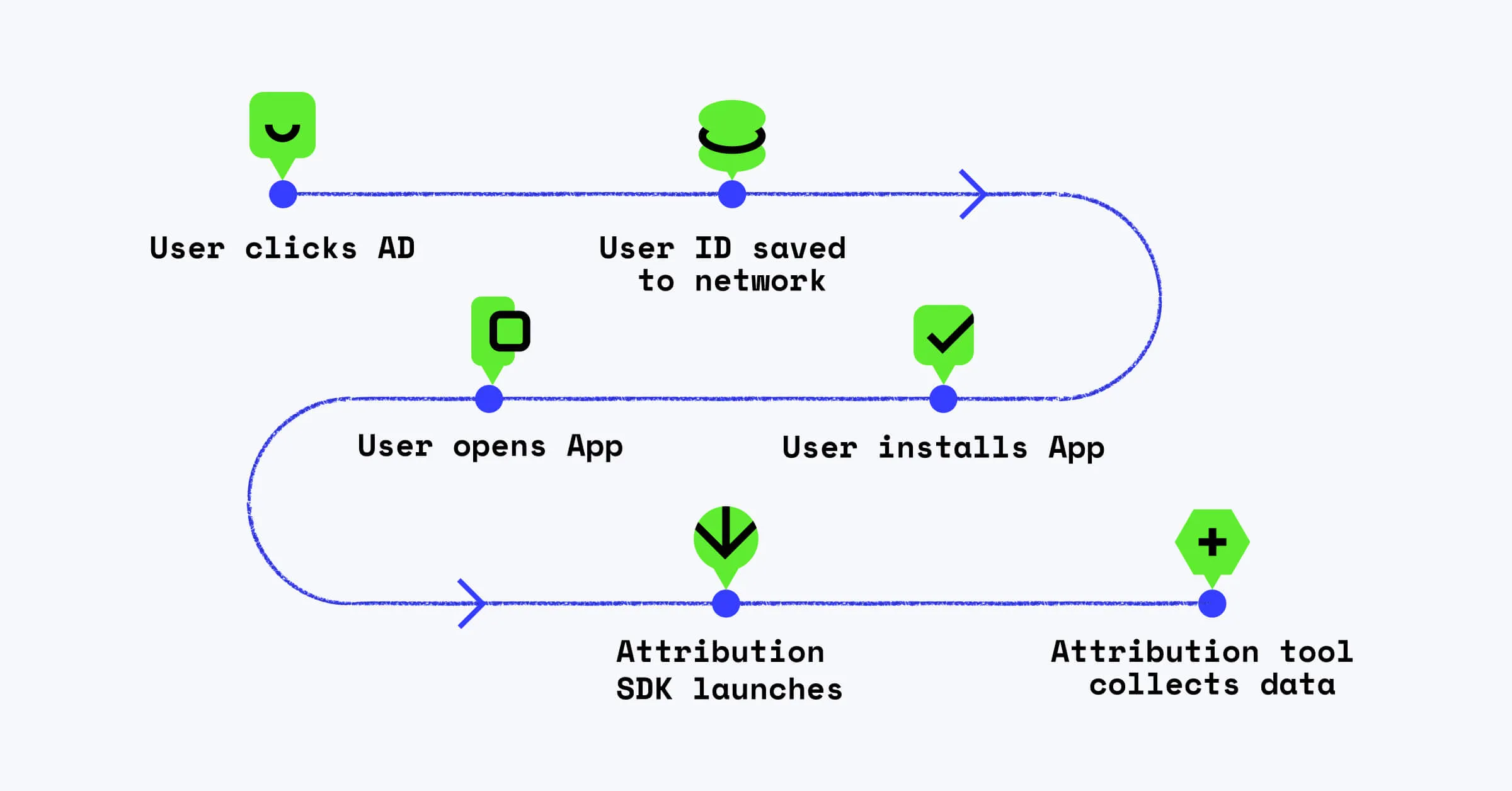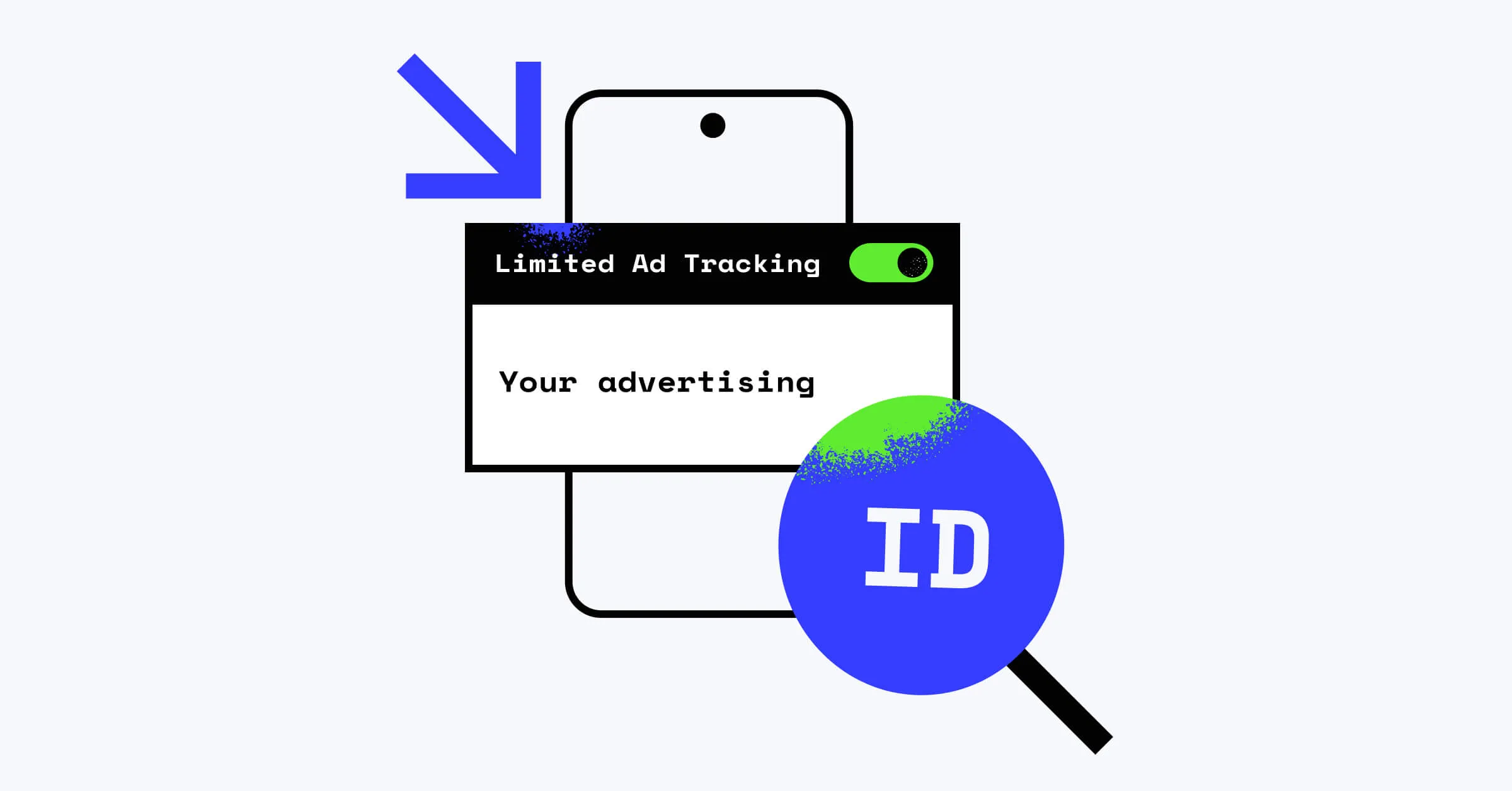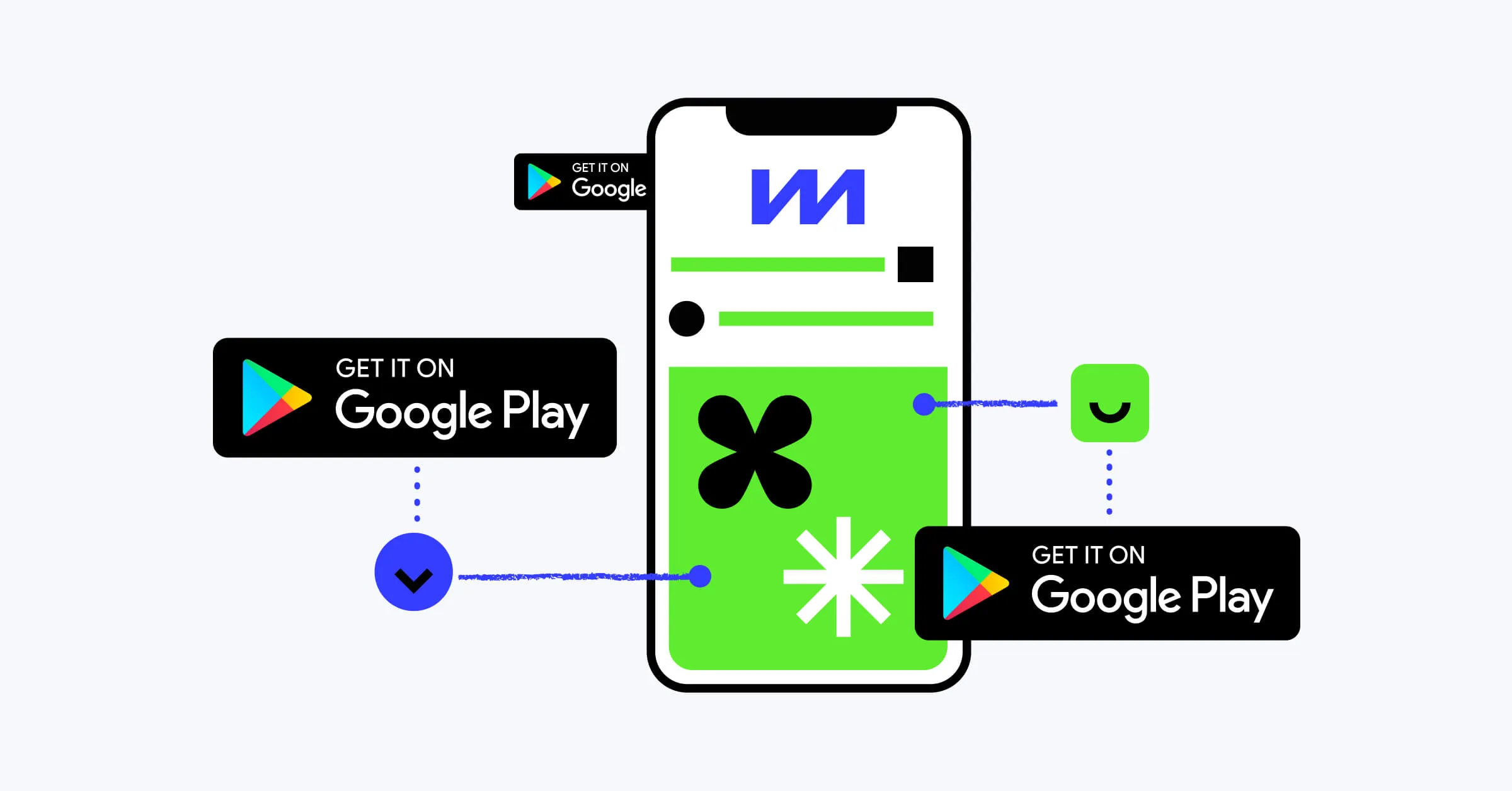Mobile attribution in Android 12: What's changed?


Share
Mobile attribution in Android is constantly changing. Like Apple, Google has introduced restrictions on how advertisers can obtain user data, giving users the option to either opt in or opt out of being tracked across mobile apps and websites. Both Google and Apple now also require app developers and publishers to supply a report on exactly what data is being collected and how it is being utilized, which is then displayed to the end user when they install an app or when the app requests their permission to collect certain kinds of data.
If you’re an Android developer, these changes significantly affect the circumstances under which you can collect certain kinds of user data. Your organization will need to update its data collection practices and processing methods accordingly - this article will show you what you need to do.
Mobile attribution at a glance
Mobile attribution is the process by which mobile app developers and marketers track interactions with their application by attributing those interactions to a specific user. Understanding this data allows businesses to better gauge which marketing channels are yielding them new users, and once obtained, how their product or service is being used.

The data obtained through mobile app attribution includes app install details, user interactions like tapping and scrolling, and what content is being viewed. Collectively, these data points can be analyzed to give insight into where your users arrive from and what exactly they do once inside your mobile app. You can then use this information to tweak marketing campaigns or the product itself to better satisfy your users’ needs.
With properly implemented mobile attribution tracking and data analysis, you can build an accurate understanding of who your users are and what they are looking for. This understanding is vital for optimizing your paid marketing funnels to avoid wasting resources on ineffective marketing campaigns, and increasing user retention.
Mobile attribution on Android devices
Up until mid 2021 and the release of Android 12, mobile app attribution tracking has been relatively straightforward on Android. Google develops the Android OS and app ecosystem, and Google is a marketing company, so they have an interest in making marketing data readily available so that they can feed relevant, useful content to their users.
Recently however, regulators and app users alike have raised concerns about the lack of privacy in this system and how it may be abused by a few bad actors. Apple has responded by enhancing the control its users have over their data, and Google has followed suit.
How mobile attribution used to work
In earlier versions of Android, the main user tracking tool in Android is the Android Advertising ID. When a user installs an app or performs an interaction, that event is associated with a unique Advertising ID, which is used to assign that interaction to a specific device or user. The Android Advertising ID is used to collect data across different mobile applications to better understand user behavior.

How mobile attribution will work from Android 12 onwards
2021 has seen the release of Android 12, which is a major update to Google’s mobile OS which is being rolled out to compatible devices.
One of the biggest changes for app developers and marketers is the user’s added ability to opt out of providing the Android Advertising ID. The Advertising ID still exists for those who do not opt out, but it becomes more difficult to assign some interactions to specific users with certainty.
Android 12 has also introduced a new safety section in the Google Play Store. Mobile app developers must now accurately disclose their data collection and usage practices to users by supplying the relevant information to be displayed in the safety section of the app listing in the Google Play Store.

How the changes made in Android 12 will affect mobile attribution in the future
These changes require businesses to update their mobile attribution practices to ensure that the data they are collecting is compliant with the new privacy policies required by both Google and Apple, while still being able to provide insights into user interactions and drive growth.
If even a moderate subset of users decide to opt out of supplying an Advertising ID, the data you collect will be incomplete, and any subsequent marketing decisions you make based on it will suffer.
Alternative tracking methods
Alternative tracking methods for determining mobile attribution exist, and are still effective in providing data that can be interpreted into actionable information.
For instance, you can use the Google Play Install Referrer instead of the Android Advertising ID to determine which channel an app installation arrived from.
You can use other information such as IP address, location, current time/timezone, device language settings, and user habits in combination to determine unique users with a high probability, without a unique Advertising ID linking every interaction.
Probabilistic attribution vs. deterministic attribution
The Advertising ID and Google Play Install Referrer are both deterministic mobile attribution methods. Put differently, they are unique identifiers that link an interaction to a specific user with 100% certainty.
Probabilistic attribution is used where deterministic attribution cannot be. If the user is not providing a unique ID with which to track them, you can use additional data points like location, current time, and device type to attribute a specific, recorded interaction to a user based on likelihood.
For example, you have a video advertisement for a mobile app that is watched at 11:00 am from a private home IP address in London. One minute later at 11:01 am, the mobile app registers a new install from that same IP address. It is highly probable that the person who watched the video advertisement and the person who installed the app are the same.
It is important to be aware of the probabilistic vs. deterministic attribution distinction, especially in light of the new changes to both the Apple App Store and Google Play Store ecosystems. While newer probabilistic methods are incredibly useful in obtaining data, interpreting that data is not always as clear-cut as in the above example. For example, rather than the request coming from a private IP address, it could have come from a mobile phone tower with thousands of connected devices, making it difficult to narrow down the user responsible.
To extract the maximum value from this probabilistic data, businesses’ will require expert data analysis and modern data modeling techniques.
How companies are adapting to Android 12 and changes to mobile attribution
Many mobile app developers and marketers use mobile attribution platforms to gather information about how their products perform. These platforms provide their own SDKs, which are included in an application to monitor user interactions
Most major mobile attribution platforms have made improvements to these SDKs for the privacy changes made in both Android 12 and Apple’s iOS 14, allowing them to collect different kinds of information to mitigate the impact of users who opt-out of unique advertising IDs.
Mobile attribution platforms
- Adjust has been working closely with Google to ensure that they are able to continue to provide deterministic attribution.
- Kochava has updated its SDK to be compatible with the new changes in Android 12 and their previous advice on how they have handled similar changes in iOS 14 remains highly relevant.
- AppsFlyer has updated its SDK to be compatible with Android 12 while providing detailed integration resources for marketers.
- Branch is working with Google to ensure their mobile attribution products remain compliant and compatible with the changes as of Android 12.
Online advertising platforms
While Facebook published specific advice prior to the rollout of iOS 14 when Apple implemented privacy restrictions, they have not, to our knowledge, done so for the changes in Android 12.
In Apple’s ecosystem, unique advertising IDs and cross-app tracking are disabled by default, and the user is prompted to opt in. In the Google Play Android app marketplace, users must specifically opt out.
According to information from Adjust, only around 2% of Android users are choosing to opt out of supplying unique Advertising IDs at this time.
However, the advice provided by Facebook regarding the impact of the new privacy tools in iOS 14 is incredibly valuable. Mobile app developers are unlikely to be targeting only a single mobile platform, and should assume that a subset of their users are not trackable using unique advertising IDs.
How will the user data which you collect be affected?
If you are a mobile app developer, it is important to take steps now to ensure that you are able to continue to collect user data from Android 12 devices.
Technical steps & compliance
You must complete the relevant forms to disclose your data collection and usage practices in the new Google Play Store safety section.
If you are using a mobile attribution platform, you must update the mobile attribution SDK and any integrations you are using to develop your application. Your mobile attribution platform will outline the upgrade process in its documentation.
Adapt your ETL pipelines to use new attribution reports
The reporting tools provided by mobile attribution platforms have been updated to reflect the privacy changes in both Android 12 and iOS 14.
Additional identifying data has been made available in these reporting tools that can be used to attribute user behaviour even when unique identifiers are unavailable. You may need to adjust existing ETL pipelines to account for these changes to the available data.
Need help with mobile attribution in Android 12+?
Mobile attribution tracking has never been as simple as matching a unique advertising ID to an installation or user action. Extracting the maximum value and insight from each data point requires multidisciplinary experience so that the data can be analyzed in context.
The changes made as of both Android 12 and iOS14 make it even more crucial to ensure that no insight is lost while data is being prepared into actionable information.
At Mighty Digital, we are industry experts in mobile attribution and can help you update marketing tools to ensure that you are not negatively impacted by any of the privacy changes included in software and policy updates to mobile app ecosystems.
We will work with you to select the right mobile attribution platform and build an appropriate data warehouse solution. With the right tools (and our experience!) you will be able to responsibly collect and make full use of data to ensure the continued growth of your business.










